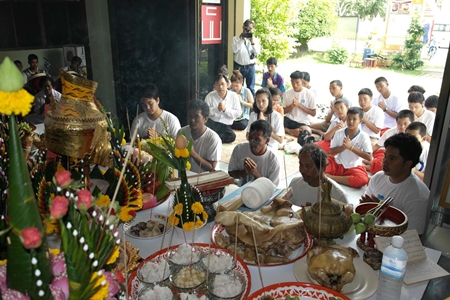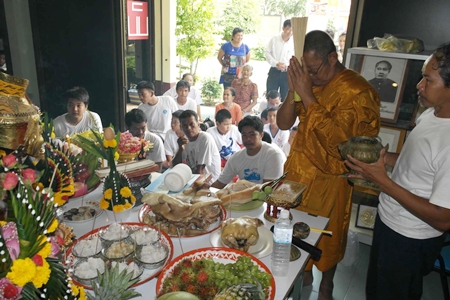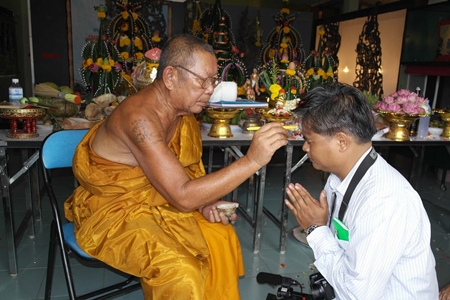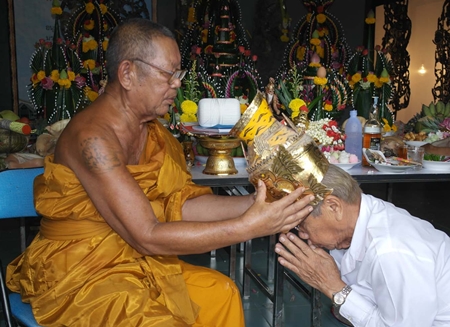Ban Don Temple kicked off a new term for its drama school with the traditional “wai khru” ceremony and a “nang yai” shadow-puppet show.
Abbot Burakhet Wuthikorn and members of the Rayong Cultural Council hosted the April 25 event in Rayong for students and alumni to pay respect to teachers at the temple school.
The school’s students, teachers and assistants met on a Thursday, as that is the day for Brihaspati, the Vedic god of wisdom and teachers, to perform the wai khru, which is done in most Thai educational institutes at the start of each year.
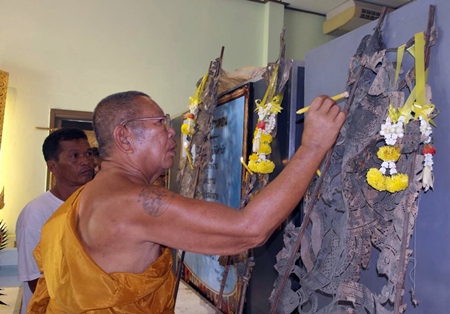 A revered monk anoints one of the Nang Yai (big leather puppets) during the ceremony.
A revered monk anoints one of the Nang Yai (big leather puppets) during the ceremony.
The ceremony begins with a Buddhist prayer, followed by the students’ recitation of the wai khru chant, which expresses respect and gratitude for the teachers and asks for their blessing of the students’ studies. Students then present teachers with a tray of candles, incense and flowers symbolizing sharp wit and respect.
Here the instructors teach different forms of Thai theatre, including nang yai, one of two forms of shadow-puppet theater from Thailand.
Less popular than the southern “nang talung,” or small leather puppets, nang yai (big leather puppets), was adapted from the 17th century southern Thailand performing art show and employs translucent puppets larger than 60cm tall. The figures are manipulated by a puppeteers and a storyteller, called a “nang nai,” while an orchestra accompanies the performance.
Aumfai Bunrot, of the Rayong Cultural Council, said the art form was brought to the area by Srisamutphok Chaichotsongkhram in the 19th century. The shadow-play theatre today is preserved at the Nangyai Wat Nan Donmusuem.
